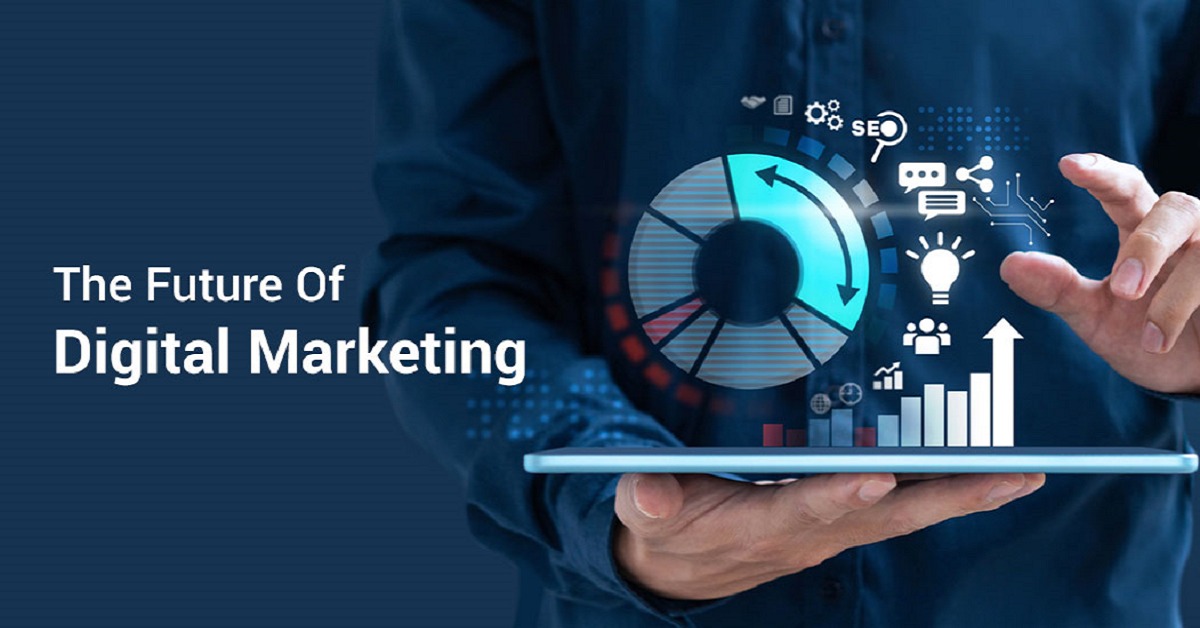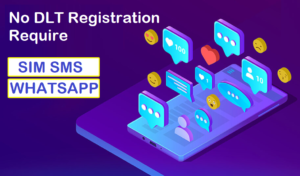The digital landscape is continuously changing, and several trends and developments were shaping the future of digital marketing. Here are some key aspects to consider:
Personalization and Customer Experience: Personalization was becoming a crucial aspect of digital marketing. Brands were focusing on delivering personalized experiences to their customers through targeted content, recommendations, and offers based on user behavior and preferences.
AI and Automation: Artificial Intelligence (AI) and automation were playing an increasingly significant role in digital marketing. AI-powered tools were being used to analyze data, optimize ad campaigns, and create personalized content, enhancing overall marketing efficiency and effectiveness.
Voice Search and Smart Devices: The rise of voice-activated search and smart devices was changing the way people interacted with information and brands. Digital marketers needed to optimize their content for voice search and adapt to new channels like smart speakers and voice assistants.
Video Content Dominance: Video content continued to gain popularity as a powerful medium for engaging audiences. Live streaming, short-form videos, and video storytelling became prevalent in digital marketing strategies.
Influencer Marketing: Influencer marketing was on the rise, with brands partnering with influencers and content creators to reach niche audiences and build trust with customers.
Social Media Marketing: Social media platforms remained essential for digital marketing efforts. Brands leveraged social media to engage with their audience, build brand awareness, and drive conversions.
Data Privacy and Regulation: Growing concerns about data privacy and stricter regulations (e.g., GDPR) influenced digital marketing practices. Brands needed to be transparent with their data usage and ensure compliance with relevant regulations.
Augmented Reality (AR) and Virtual Reality (VR): AR and VR technologies offered new opportunities for immersive and interactive marketing experiences, enabling brands to engage customers in innovative ways.
E-commerce and Mobile Marketing: E-commerce continued to thrive, and mobile marketing became critical as more people used smartphones and mobile devices for online activities and shopping.
It’s important to note that the digital marketing landscape is continuously evolving, and new technologies and trends may have emerged since my last update. For the latest insights and trends, I recommend consulting recent industry reports, reputable marketing blogs, and attending digital marketing conferences and webinars. Staying updated on industry developments will be crucial for marketers to stay ahead in this dynamic and competitive landscape.
Consumers hold the key to the future of digital marketing because they are the ones who ultimately decide which marketing messages they engage with and which they ignore. As technology continues to evolve, consumers are becoming more empowered than ever before, with more control over their data, their online experiences, and the brands they choose to interact with.
Here are a few reasons why consumers hold the key to the future of digital marketing:
Consumers are increasingly in control of their data: With the rise of data breaches and privacy scandals, consumers are becoming more aware of their data and how it is being used. This has led to new regulations like GDPR and CCPA, which give consumers more control over their data and require companies to be more transparent about their data practices. As a result, digital marketers will need to be more transparent and respectful of consumers’ data in the future.
Consumers are becoming more selective about the content they consume: With so much content available online, consumers are becoming more selective about what they choose to engage with. This means that digital marketers will need to focus on creating high-quality, relevant content that resonates with their target audience if they want to be successful.
Consumers are more likely to trust recommendations from peers: In today’s world, consumers are more likely to trust recommendations from their peers than they are to trust traditional advertising. This means that digital marketers will need to focus on building relationships with their customers and creating content that encourages sharing and engagement.
Consumers are using technology to control their online experiences: With ad-blockers, spam filters, and other tools, consumers are becoming more adept at controlling their online experiences. This means that digital marketers will need to find new ways to reach consumers, such as through influencer marketing, user-generated content, and other strategies.
Conclusion, consumers hold the key to the future of digital marketing because they are the ones who ultimately decide which messages they engage with and which they ignore. Successful digital marketers will need to be respectful of consumers’ data, create high-quality, relevant content, build relationships with their customers, and find new ways to reach their target audience in the face of evolving technology and changing consumer behavior.




